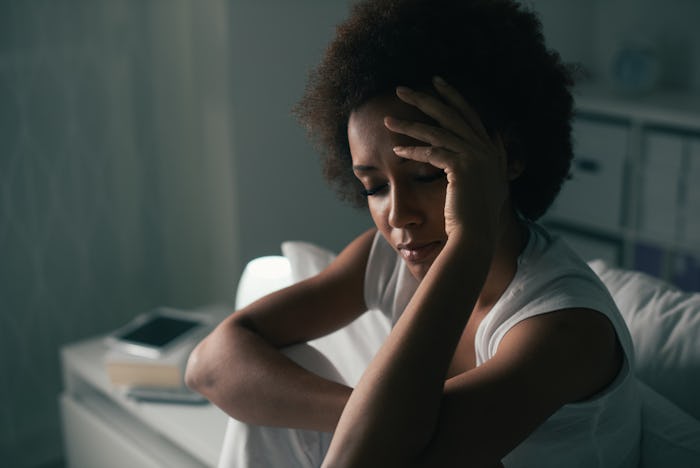Life

Thanks To Tori Foles, POTS Is Finally Being Recognized — But What Are The Symptoms?
Navigating a not-easily-diagnosable condition is hard enough without having to deal with healthcare professionals who chalk it up to something that's "all in your head." As someone who pushed for root causes behind decade-long digestive pain, I can relate. It took advocating for what my intuition told me was a health issue before I received a diagnosis of celiac disease. Turns out I'm not alone: In fact, insisting on answers is what eventually earned Tori Foles — wife to Philadelphia Eagles quarterback Nick Foles — the answers she was seeking: She has POTS. I know, what is POTS, right? It turns out, it's not made up and Tori Foles had been right along — what she was dealing with was more than a self-created disorder.
First, the facts: POTS — postural orthostatic tachycardia syndrome — is a little-known syndrome in which individuals develop low blood pressure and tachycardia (fast heart rate), Dr. Jennifer Haythe, a New York-based cardiologist, tells Romper in an email interview. "People often feel very symptomatic when they stand up — lightheaded, dizzy, nausea, palpitations, racing heart, and sometimes even fainting," she says.
Which is exactly what Tori Foles first described when she saw a doctor about her symptoms: "They told me I had a virus," she told CNN, "but I had never heard of one where you are dizzy all the time. There were a lot of times I couldn't get out of bed."
According to Standing Up To POTS, one of the key symptoms of POTS is orthostatic intolerance, which is relieved by reclining. "Because the autonomic nervous system is not functioning correctly, the constriction of blood vessels that normally occurs when we transition from sitting to standing is decreased or absent," the website noted. "This lack of vessel constriction leads to blood pooling in the legs and abdomen, which results in a shortage of blood in the heart and brain." The result is the already-mentioned dizziness, light-headedness, and possible fainting characteristic of the syndrome.
"POTS patients do not do well with gravity," Dr. Satish Raj, medical director of the autonomic investigation unit at the Libin Cardiovascular Institute of Alberta, told CNN. "Normally, when you stand up, your heart rate automatically goes up about 10 to 15 beats per minute to increase blood pressure and blood flow and then stabilizes."
But for people with POTS, Raj explained to the news outlet, "it's at least 30 beats a minute within 10 minutes; some can be as high as 60 beats per minute. The brain jumps in to shut that down and you become faint."
According to Dysautonomia International, POTS is estimated to affect a total of 1 million to 3 million Americans. It is most frequently seen in young women often less than 35 years of age. In fact, "80 percent of POTS sufferers are women and about half, like Tori Foles, are young and relatively healthy when the condition strikes," according to CNN.
In her blog, Tori Foles shared her experience with a cardiologist. "I will never forget when he looked at me in his office and said: 'You are young and healthy. You are in perfect condition. Have you looked into depression or anxiety?'" she wrote.
Unconvinced, she pushed for more testing.
Treatment for POTS can require beta blockers, which are a class of medications that slow the heart rate, according to Haythe. Medications like salt tablets, fludrocortisone, pyridostigmine, and midodrine are also often prescribed to help control the syndrome, according to Cleveland Clinic. Patients may be prescribed thigh-high medical compression stockings that help push the blood up from the legs to reduce symptoms, too.
People with POTS are also advised to keep a blood pressure monitor on hand to regularly check blood pressure and pulse, and some are recommended to a cardiac rehab program to help with symptoms.
"Although it has been a rollercoaster, my faith has grown stronger with each day and I am continuing to improve, which is why I am sharing with all of you," Tori Foles wrote in her blog. Moral of the story (in addition to now knowing a lot more about POTS)? Trust your gut. If you don't think you are getting the answers you need for your health, then keep pushing until you find them.